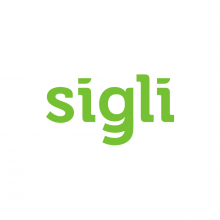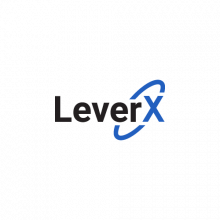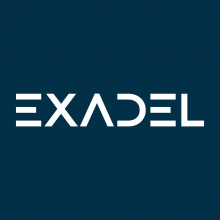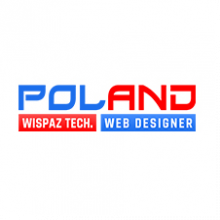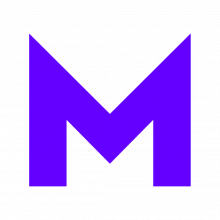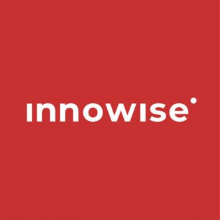
There are 17 Companies in Lithuania
that provide Flutter Development Services!
Lithuania's ICT sector is evolving, full steam ahead. An increasing number of companies have arrived in the country, drawn by its infrastructure, people, and business-friendly mindset. With some of the fastest and most affordable internet connections in Europe and a tech-savvy population ranking 16th in the world for ICT skills, Lithuania has recently attracted giants such as Google.
Discover Top IT Companies in Lithuania specialized in Flutter and other related services. Find the best IT service providers for your projects.
Flutter is an open-source UI (User Interface) framework developed by Google for building natively compiled applications for mobile, web, and desktop from a single codebase.
It was officially introduced by Google in May 2017, although its development began earlier as an internal project named "Sky." It aimed to address challenges in cross-platform mobile app development by providing a consistent and high-performance framework for building native-like apps on iOS, Android, and other platforms. Flutter has since gained significant traction and popularity in the developer community.
Handpicked companies • No obligation to hire • 100% risk-free
Featured Companies in Lithuania
This month, the following Flutter Development companies managed to provide an outstanding service and support. It's worth taking a look.
SaM Solutions is an international provider of IT services and software solutions with over 30 years of experience.
Explore Top Flutter Development Companies in Lithuania
Reverbtime Magazine stands as a premier resource for professionals seeking comprehensive insights across multiple sectors.
Services:
We build apps that people love!
The best technology solutions provider dedicated to creating innovative applications that address the needs of corporate businesses and individuals.
Altabel Group offers custom software development, IT consulting and flexible team augmentation for the clients worldwide.
We architect and engineer first-class custom software solutions to meet our clients' business challenges.
IT Staff Augmentation & Tech Recruitment Services: JayDevs helps you skip the sourcing, job ads, and resume screening.
Excellence in development
We transform ideas into software products.
Filter Flutter Development Companies in Lithuania by Cities
Find the right tech company near you or from a specific city. Some of the best companies might be located in smaller cities.
Find more Flutter Development companies around the world
TechBehemoths is the world's most advanced and user-friendly platform to match IT Companies with real clients without hustle.
The ICT in Lithuania: Overview and Companies Data
In the past 10 years, Lithuania has developed its IT industry and infrastructure. Projects like e-Lithuania, e-residency, and VR Lithuania, among others, transformed the country into a fully digitalized hub in the Baltic region.
The IT Services sector itself plays an important role in the Lithuanian economy, registering a revenue of almost $500 million in 2025. Also, ~4.0% of the entire Lithuanian workforce is enrolled in the IT industry, for those 4200+ digital companies that export their services in 130 countries.
Why Work With Lithuanian IT Companies
Essential e-solutions in Lithuania that enable the digital society to function smoothly were all built by local Lithuanian companies. This enhances the reliability of Lithuanian IT companies not only locally but also worldwide - about this, we will relate a bit later.
The already built digital system in Lithuania already tells a lot about Lithuanian IT companies that perform excellently, and are becoming more and more attractive not only for companies but also for skilled professionals who are enjoying preferential conditions.
So, after all, why should you work with Lithuanian IT companies?!
- Skilled workers who provide high-level digital services
- Open market - that facilitates and eases access to IT resources and companies' services
- Low taxes - compared with other European countries, Lithuania helps local IT and tech companies generate sales by cutting taxes, which can reflect a lower price/project for the end customer.
- A healthy business environment and well-established communication between businesses are assured.
What You Should Pay Attention to When Working With Lithuanian IT Companies
However, working with Lithuanian IT companies can also be tricky. Even though the post soviet reminiscences are not visible, you still can hit Russian Lithuanians that are providing the same IT services, but of a relatively lower quality, and in a very specific manner. Roughly, some of the companies are only benefiting from the developed IT environment in Lithuania, but don’t follow the same guidelines as the vast majority of companies do.
Another challenge is the limited human resources that Lithuanian companies have. The country’s population is just above 2.8 million people, and 6% of it is simply not enough to cover all market demands, so it would be difficult to find an available IT company based in Lithuania to take on a big project or so.
How Developed is the Lithuanian IT Infrastructure
Lithuania ranks among the top European countries with the highest IT infrastructure. As mentioned previously, its digital transformation made the country one of the regional innovation leaders. But even so, the country is still not done yet with developing its IT capabilities.
How Does the Lithuanian IT Industry Perform Compared to the Neighboring Countries?
In the Baltics, Lithuania is a detached leader in IT. Latvia and Estonia are behind simply because they focused on developing other sectors. But the Lithuanian performance is also motivated by people’s attachment to digital technologies. The continuously growing number of digital agencies confirms once again that Lithuania ranks better than neighboring countries.
But speaking about Lithuania as an extension to Europe’s northern region, the country is in tight competition with Latvia and Estonia, which also find themselves somewhere in the first half of the European IT community.
Compared with those two countries, Lithuanian companies will rather provide lower prices for their IT and digital services and products, but at the same time, Lithuania has way more limited resources than Estonia or Finland.
All in all, Lithuania is a great country to consider for digital projects, and local companies' rich experience with digital transformation can make a difference in their projects.
Lithuania's Tech in 2025 - Update
Considering the progress Lithuania has made throughout the last 3 years, it is no wonder that 2022 will be another good period for the ICT and, especially, local IT companies. Lithuania is abundant with news and tech-related events meant to encourage startups and entrepreneurship. As a direct result of continuous efforts invested in ICT, Lithuania got the #10 global position in FinTech and has over 42K ICT specialists employed in the tech sector as of December 2021.
In 2025, the tech sector in Lithuania is experiencing major growth with the help of startup funding, with 167.7 million euros raised. The ICT sector contributes 5.4% to GDP through exports, especially to the US and the UK.
What is Flutter and what are its benefits for your projects?
Flutter is an open-source UI (User Interface) framework developed by Google for building natively compiled applications for mobile, web, and desktop from a single codebase.
It was officially introduced by Google in May 2017, although its development began earlier as an internal project named "Sky." It aimed to address challenges in cross-platform mobile app development by providing a consistent and high-performance framework for building native-like apps on iOS, Android, and other platforms. Flutter has since gained significant traction and popularity in the developer community.
Flutter has seen rapid adoption, thanks to its key advantages, such as a single codebase for multiple platforms, a rich set of pre-designed widgets, and fast development cycles. It has found use in various industries, including mobile app development, web development, desktop applications, and even embedded systems. Some notable apps developed with Flutter include Alibaba, Google Ads, eBay Motors, and more. Its usage continues to grow, and it has a strong developer community and ecosystem.
Flutter is versatile and suitable for a wide range of projects:
- Mobile Apps: Flutter is commonly used for developing mobile applications, including consumer apps, business apps, e-commerce apps, social media platforms, and more. It provides a native-like experience on both Android and iOS.
- Web Apps: Flutter can be used to build web applications, allowing developers to target browsers as well. This is still in the experimental phase (as of my knowledge cutoff date), but it shows promise for building responsive web interfaces.
- Desktop Applications: Flutter supports desktop platforms like Windows, macOS, and Linux. Developers can create desktop applications for various purposes, including productivity tools and utilities.
- Embedded Systems: Flutter can be used to create user interfaces for embedded systems and IoT (Internet of Things) devices, providing a consistent look and feel across different hardware.
- Custom UI Components: Flutter is often used to build custom UI components and widgets that can be integrated into larger applications, providing a cohesive design language.
Hourly rates for Flutter developers can vary significantly based on factors like location, experience, project complexity, and demand. On average, Flutter developers may charge anywhere from $25 to $150 or more per hour. Rates tend to be higher in regions with a higher cost of living, such as North America and Western Europe, and lower in regions with lower living costs, such as Asia and Eastern Europe.
It's important to note that more experienced and specialized Flutter developers with a strong track record may charge higher rates. Additionally, some developers or development agencies may offer fixed-price contracts for specific Flutter projects, which can vary widely based on the project's scope and requirements.
When hiring Flutter developers, it's essential to consider factors like their expertise, portfolio, and the complexity of your project. Getting multiple quotes and conducting interviews can help you determine a reasonable rate and find the right developer or team for your specific needs.
We have also written an extensive research of what skills you should be looking for when hiring Flutter developers.

